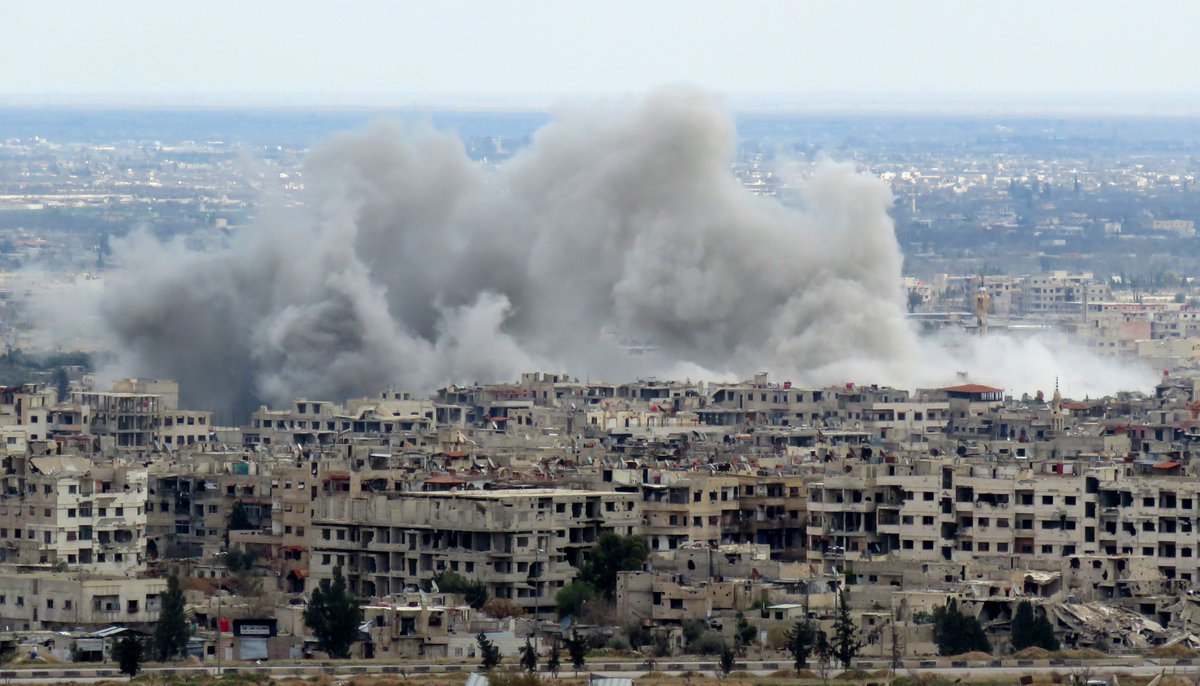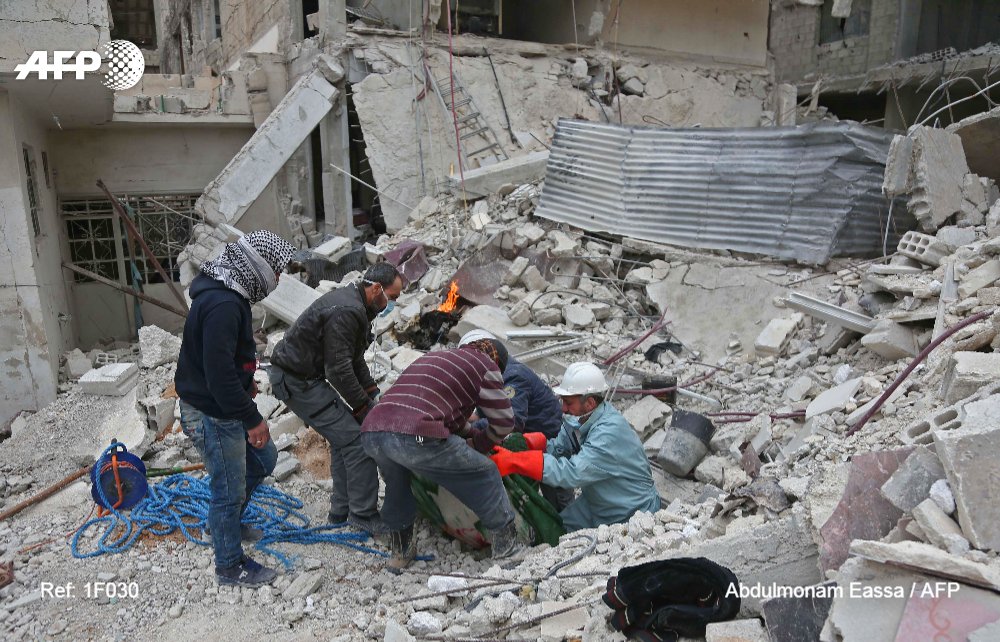
'Civilians in Syria’s besieged Eastern Ghouta enclave said Wednesday they would not leave their home despite a UN cease-fire meant to provide a respite from a barrage of Assad regime attacks.
The target of a five-year siege by Assad regime forces -- cutting it off completely from humanitarian aid, food, and medicine -- Eastern Ghouta has faced intensified attacks in recent days.
Since Feb. 19, escalating hostilities have resulted in 500 deaths and some 1,500 injuries in Eastern Ghouta, with 24 health facilities impacted by shelling and airstrikes, according to UN officials.
The attacks come despite a UN Security Council resolution passed last Saturday for a 30-day cease-fire in Syria.
While the Assad regime airdrops messages telling the 400,000 people of Ghouta to leave, Russia announced a five-hour daily “humanitarian pause” to allow civilian evacuation.
Muhammad Awwad, who lives in Eastern Ghouta’s Kafr Batna district, said that he lost his two children in recent regime attacks.
“While we were trying to rescue people under the debris, warplanes hit us… They hit our children,” he explained.
Saying that they will resist no matter what, he added:
“Whatever happens, our home and lands are here. No one can take us away from here. We will stay here until we die.”
“While we were trying to rescue people under the debris, warplanes hit us… They hit our children,” he explained.
Saying that they will resist no matter what, he added:
“Whatever happens, our home and lands are here. No one can take us away from here. We will stay here until we die.”
Muhammad Yaarub, another resident of the besieged enclave, said that there are no military installations in Eastern Ghouta, only civilians.
He called the regime claim that it is targeting terrorists a lie, as there are no fighters in the area.
“We will endure till the end no matter how long it lasts. We won’t leave here.”
Maha Ukasha, a teacher, said that many of her students lost their lives even when seeking protection in underground shelters.
“We won’t give up. We will continue their education,” she said defiantly.
He called the regime claim that it is targeting terrorists a lie, as there are no fighters in the area.
“We will endure till the end no matter how long it lasts. We won’t leave here.”
Maha Ukasha, a teacher, said that many of her students lost their lives even when seeking protection in underground shelters.
“We won’t give up. We will continue their education,” she said defiantly.
According to the Syrian White Helmets civil defense group in Eastern Ghouta, in the last two weeks the regime has targeted 22 health centers, a mosque, and an orphanage.
Eastern Ghouta falls within a network of de-escalation zones -- endorsed by Turkey, Russia and Iran -- in which acts of aggression are expressly prohibited.
The UN resolution also calls for the medical evacuation of 700 people, particularly in Eastern Ghouta.'
Eastern Ghouta falls within a network of de-escalation zones -- endorsed by Turkey, Russia and Iran -- in which acts of aggression are expressly prohibited.
The UN resolution also calls for the medical evacuation of 700 people, particularly in Eastern Ghouta.'

No comments:
Post a Comment